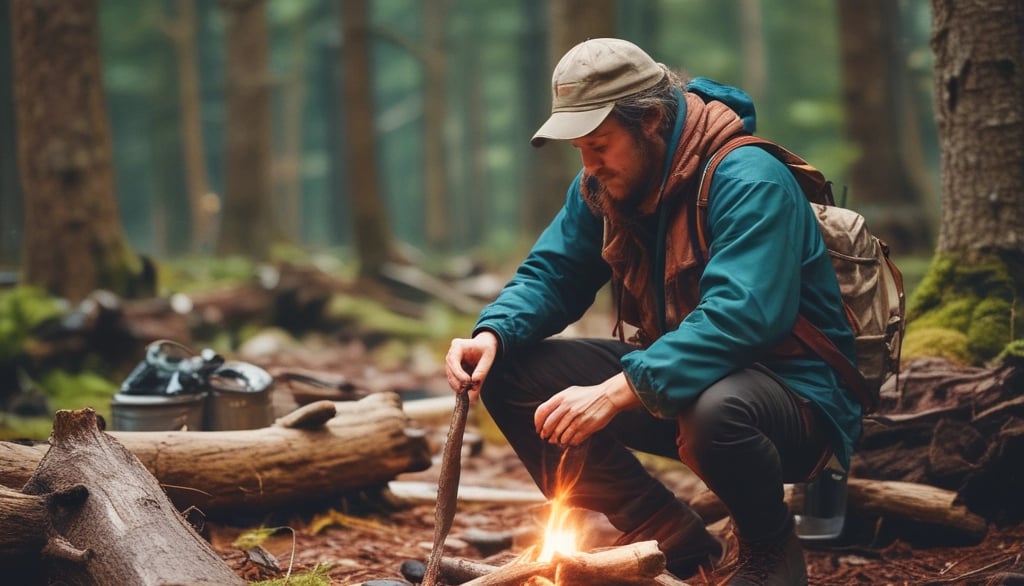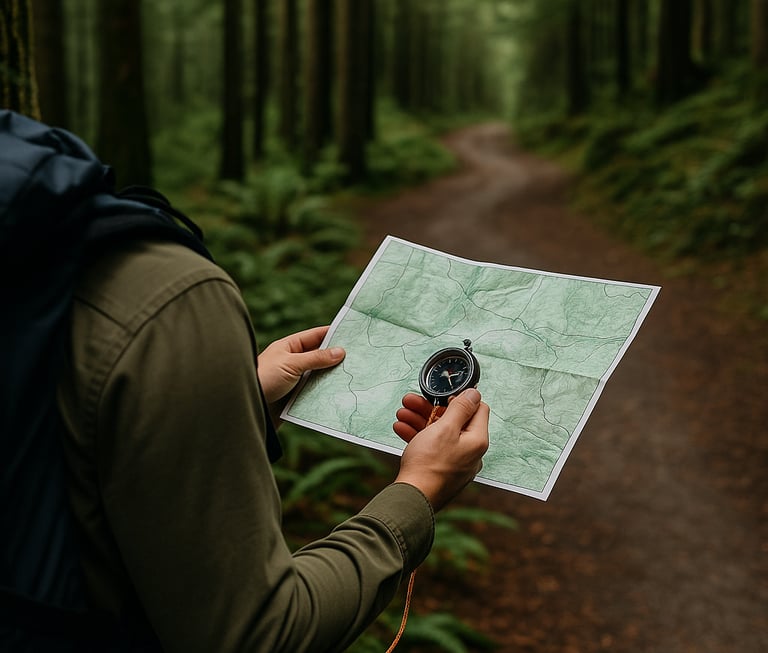10 Essential Hiking Survival Skills Every Hiker Should Know Before Hitting the Trail
Heading into the wild? Learn the 10 most essential hiking survival skills to stay safe, prepared, and confident before you hit the trail.


10 Essential Hiking Survival Skills Every Hiker Should Know Before Hitting the Trail
Hiking is one of the most rewarding ways to experience nature, but even a short trail can turn dangerous without the right knowledge. Weather changes, wrong turns, and unexpected injuries can all turn a peaceful hike into a survival situation.
Whether you're heading out for an afternoon trek or a multi-day adventure, these hiking survival skills could be the difference between a safe return and serious trouble.
Build a Basic Shelter with Natural Materials
If you ever get stranded or injured, shelter becomes your top priority. Knowing how to create a windbreak or rain cover using branches, leaves, or a tarp can help protect you from hypothermia.
A simple lean-to, A-frame shelter, or even a space blanket draped over sticks can make a huge difference in cold or wet conditions.
Learn to Start a Fire in Any Weather
Fire is warmth, light, and a lifeline. It can signal for help, purify water, and boost morale. But starting a fire with wet wood or in strong wind is not easy.
Every hiker should carry fire-starting tools like waterproof matches, a ferro rod, or a lighter. Whenever possible, practice at home and in different conditions so you're ready when it counts. And here's where patience and perseverance are key; trying to make fire can sometimes take numerous tries.
Know How to Navigate Without a Phone
GPS apps are great — until they aren’t. Batteries die, signals disappear, and phone screens crack. That’s why every hiker should know basic map and compass navigation.
Learn how to read topographic maps, identify terrain features, and orient yourself using a compass. These traditional skills still work when technology fails.
Purify Water Safely and Easily
Thirst can set in faster than you expect. Even if you find a stream, drinking untreated water can lead to parasites like Giardia.
Always carry a lightweight water filter, purification tablets, or a metal container to boil water. Know how to spot safe collection points — fast flowing water is usually better than stagnant pools.
Master Basic First Aid for the Trail
Minor injuries can become major problems in the wild. Learn how to clean and wrap wounds, splint a sprain, treat blisters, and spot signs of dehydration or heat exhaustion.
Bring a small first aid kit that includes bandages, antiseptic, tweezers, tape, and pain relievers. And don't just buy a first aid kit and assume it has everything you need. Check it before you got out in the wilderness and add any item you may need. Last thing you want is to need something in the backcountry only to learn your kit doesn't have it. And, most importantly, know how to use everything in it.
Use the “Rule of Threes” to Set Priorities
When you're in survival mode, priorities matter. The Rule of Threes is a simple way to remember what to focus on:
You Can go:
3 minutes without air
3 hours without shelter in harsh weather
3 days without water
3 weeks without food
This helps you keep calm and handle the most critical needs first.
Signal for Help Effectively
If you're lost or injured and need rescue, knowing how to signal is essential. Mirrors, whistles, bright clothing, or even creating visible patterns with rocks or logs can attract attention.
Three of anything — like three fires or three whistle blasts — is a universal distress signal in the outdoors.
Pack Smart, Light, and Prepared
What you carry matters. Include essentials like a map, compass, knife, fire starter, headlamp, emergency blanket, and extra food and water.
It’s not about carrying more — it’s about carrying smarter. Make sure your gear is easy to access and that you actually know how to use it all.
Practice Staying Calm Under Pressure
No survival skill is more important than mental resilience. Panic leads to poor decisions. Calm leads to clear thinking and better outcomes. Practice mindfulness or breathing techniques when you hike so that in a real emergency, you can stay focused and act effectively.
Leave a Trip Plan Every Time
Before any hike, let someone know your plan: where you’re going, when you’ll be back, and what trail you’ll be on. If something goes wrong, that info helps search and rescue find you faster. I've known people that got lost (even one that died) on a hiking trail and one of the problems was that no one knew they were hiking. They hadn't told anyone where they were going to be. Don't make that mistake.
It’s simple, takes two minutes, and could save your life.
Final Thoughts
Hiking doesn’t have to be dangerous — but you do need to be ready for the unexpected. These essential survival skills for hikers can turn a stressful situation into a manageable one. Learn them, practice them, and you’ll feel more confident every time you hit the trail.




© 2025. All rights reserved About | Privacy Policy | Terms and Conditions | Affiliate Disclosure | Disclaimer


